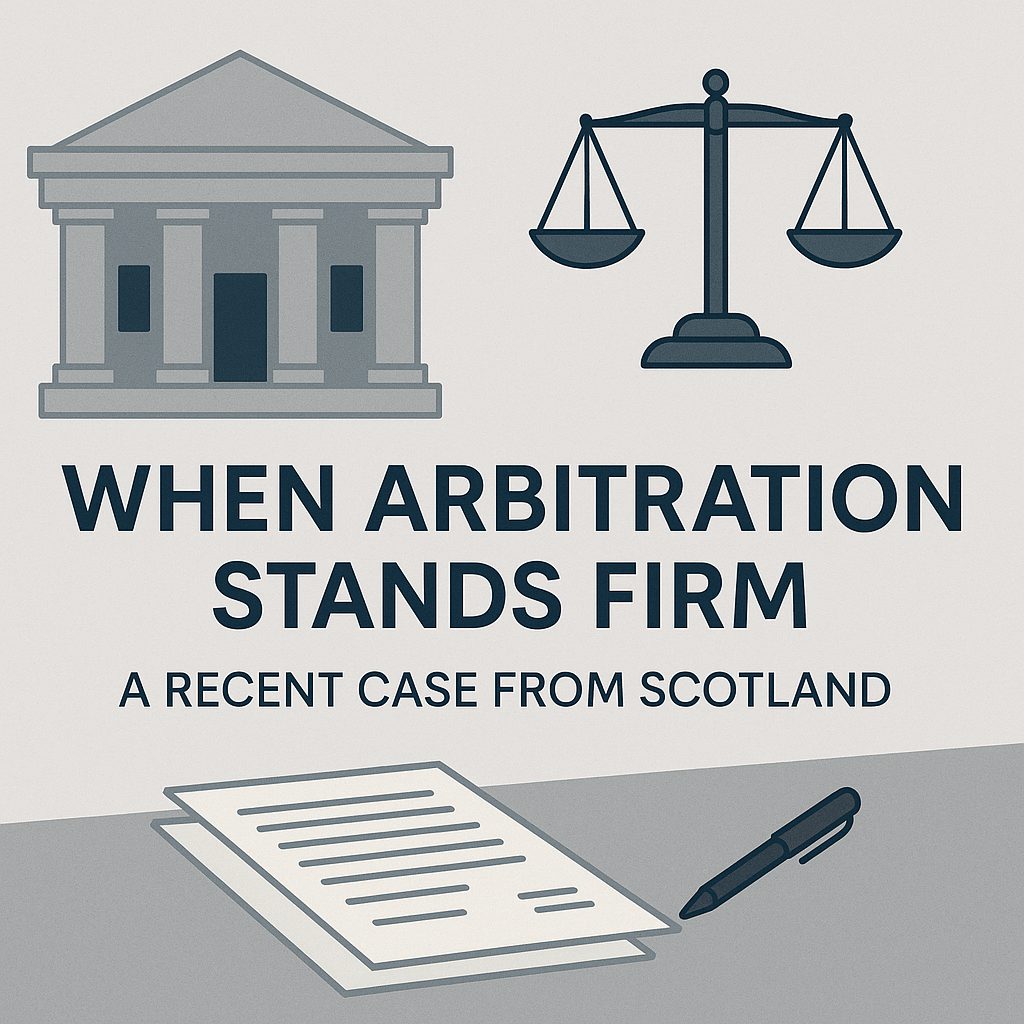
Arbitration in Action: Final, Binding, and Upheld by the Courts – A Recent Case from Scotland
Arbitration is often talked about as an alternative to court, but sometimes people forget that once you choose arbitration, it usually is the court for that dispute. A recent case in Scotland provides a clear reminder.
The background
An individual brought a claim through the Travel Arbitration Scheme, operated by Hunt ADR. They were seeking over a thousand pounds in compensation. After reviewing the evidence, the arbitrator awarded a much smaller sum.
At that point, the claimant had two options: accept the award or appeal through the scheme’s appeal process within the required timeframe. They chose not to appeal. Instead, some months later, they raised a fresh claim in the Scottish courts for a higher amount.
What happened in court
The travel company appointed well-known lawyers and defended the claim, arguing that the courts had no jurisdiction. The sheriff agreed. Because the claimant had voluntarily chosen arbitration, received a binding award, and not appealed it, the matter was closed. The courts would not re-open a dispute that had already been determined through arbitration.
Why this matters
This outcome is significant because it reinforces two important principles:
Finality of arbitration: Arbitration isn’t a “practice run” before going to court. Once you choose arbitration, the award is binding, subject to any appeal rights within the arbitration clause or scheme.
Jurisdictional clarity: Courts will respect arbitration agreements and awards. If you agree to resolve a dispute through arbitration, you can’t simply switch back to court later because you’re unhappy with the outcome.
Lessons for parties in arbitration
For consumers, this is a reminder to use the appeal process if you believe an award is one which an arbitrator should not have reached on the facts presented to them – and to do so within the deadlines set out in the scheme rules.
For businesses, it’s reassuring that courts will uphold arbitration agreements and prevent repeated claims on the same dispute.
Beyond consumer disputes
And it’s not just about consumer disputes. The same principle applies in business-to-business arbitration. When companies agree to resolve disputes through arbitration, they are committing to a process whose outcomes will normally be respected by the courts. Whether the sums involved are modest or substantial, once the award is made and appeal rights within the scheme (or the relevant arbitration rules) are not taken up, the award stands. This certainty is one of the reasons arbitration is widely used in commercial contracts – it brings finality, reduces the risk of re-litigation, and ensures disputes are resolved efficiently. That’s why options like the Private Arbitration Court exist.
Conclusion
This Scottish case shows in practice how arbitration decisions hold up when tested against a later court action. It should give confidence to those who choose the Travel Arbitration Scheme that its outcomes are respected across borders and by the courts themselves.
